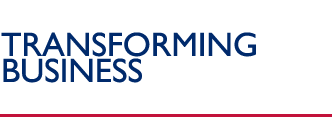Welcome to the BTEC Website
A message from Deputy Administrator Frederick W. Schieck
Chairman, USAID's Business Transformation Executive Committee
Managing a comprehensive business transformation across an agency as large and decentralized as USAID is an enormous challenge. From the start, the Administrator recognized that establishing an effective governance structure would be one of the most important keys to our success. And certainly another such key is enlisting the support of our employees, in Washington and the field, in the success of our reform initiatives. In my role as Chairman of USAID's Business Transformation Executive Committee (BTEC), I have guided the process for achieving these objectives. The Administrator created the BTEC to unite the most senior career executives across the Agency in a partnership to reform the Agency's management systems and improve organizational performance. The Assistant Administrators for Management (AA/M) and Policy and Program Coordination (AA/PPC) serve as vice-chairs. The membership consists of the Agency counselor, along with senior level executives representing central and regional bureaus (missions) and independent offices. Additionally, there are six subcommittees chaired by BTEC members, with representatives from Washington organizations and missions.
The BTEC is based on the recognized "best practice" that successful, large-scale transformation requires active collaboration, shared ownership and accountability across an organization's entire top leadership team.
The BTEC has developed the major components of our business transformation plan: Strategic Management of Human Capital; Business Systems Modernization; Knowledge for Development and Strategic Budgeting. The plan has been designed to support the President's Management Agenda (PMA), the Administrator's Management Reform Principles, and the management strategic objectives of the Joint State-USAID Strategic Plan. It is an integrated and coordinated plan with mutually reinforcing performance goals organized around four focus areas that represent the Agency's most important assets: our People, our Ideas, our Technology, to improve our Results in development and humanitarian assistance around the world.
The BTEC meets monthly to review progress, set priorities and make decisions. It serves as the Agency's capital investment review board to ensure that investments address USAID's highest priorities and meet employees' needs.
The President's September 2002 National Security Strategy emphasizes development as one of the three essential components of American foreign policy alongside defense and diplomacy. Building on the National Security Strategy, USAID and the State Department have created a Joint Strategic plan, a Joint Policy Council and a Joint Management Council to strengthen our collaboration when and where it makes sense. We are working together to review our policies, programs and administrative services and continuously improve coordination, eliminate redundancies and ensure intended results. In FY 2004 we published a White Paper listing five major foreign assistance goals: promoting transformation or sustainable development; strengthening fragile states; providing humanitarian relief; promoting U.S. geostrategic interests; and mitigating global and transnational ills. Our business Transformation plan is helping USAID achieve these core missions.
Our results-oriented reforms are already benefiting our employees and U.S. taxpayers. We've shown consistently improving scores on the Administrator's annual Agency-wide survey of employee satisfaction with management services; we've demonstrated financial accountability -- USAID received its second consecutive unqualified (clean) audit opinion in FY 2004 from the Office of the Inspector General. We've launched the Development Readiness Initiative to recruit and train the Agency's 21st century workforce in the skills needed to meet future challenges. We've launched an automated HR tool to simplify and quicken USAID's job recruitment process. We've developed knowledge management tools to bring development professionals together "virtually" to share experience and best practices for improved program performance. We've developed a strategic budgeting model to enable us to link performance and resource allocation more efficiently. We are additionally making good progress in modernizing our financial and procurement systems to enable greater speed, transparency and accountability in our business transactions - our new financial management system is being successfully installed at our missions overseas. We are also showing steadily improving scores in all five initiatives of the President's Management Agenda: Strategic Management of Human Capital; Improved Financial Management; Expanded e-Government; Competitive Sourcing; and Budget and Performance Integration.
Our next steps include continuing with the overseas deployment of Phoenix, along with new procurement software that will integrate with State's financial system. These systems will standardize and web-enable our core business processes to reduce costs, make systems easier to use and enhance our ability to respond to emerging program needs.
We are confident that our business transformation plan and the BTEC are making a difference in improving our capabilities to meet the challenges of the 21st century.
Frederick W. Schieck, D/AID
Chairman, Business Transformation Executive Committee
Back to Top ^
|


